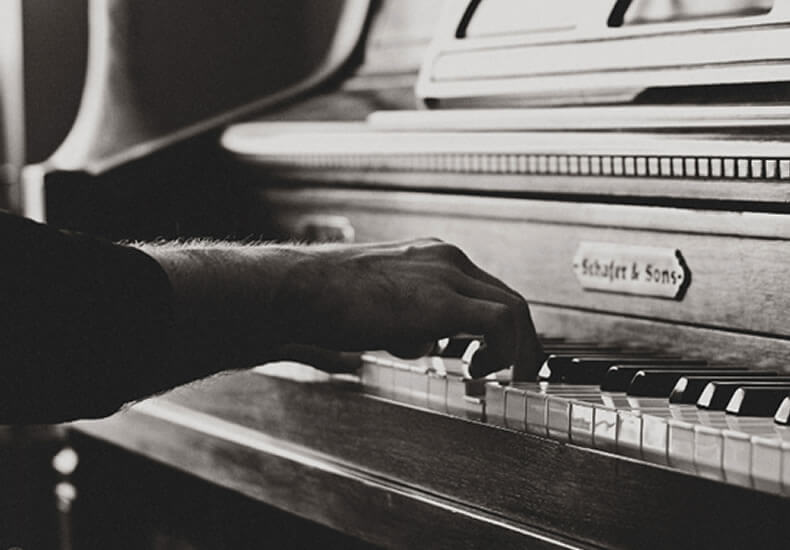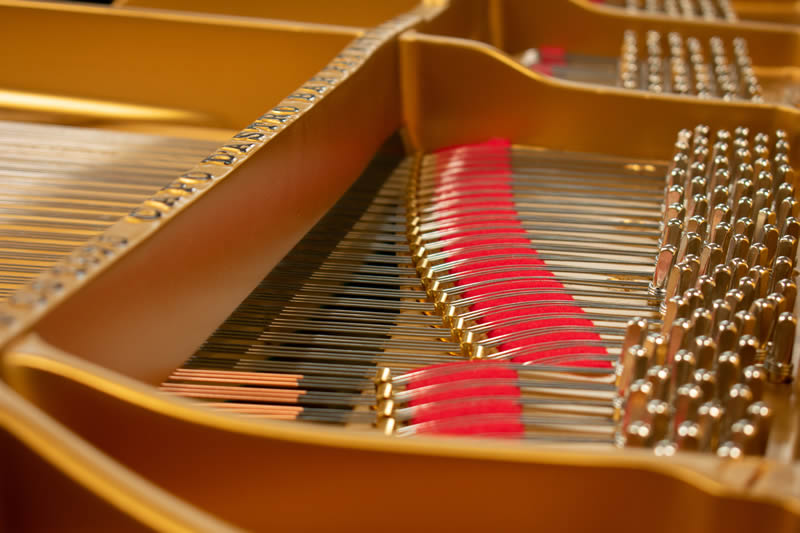PIANO TUNING SERVICES
Piano Tuning & Voicing Services
in Dallas, TX & Beyond
At Bradfield Piano, we’re all about making your piano sound its best. When it comes to tuning, we’ve got you covered. Our in-home piano tuning service guarantees professional care for your instrument to provide you with a convenient and personalized service. Our experienced technicians come directly to your home, providing expert tuning to keep your piano sounding its best. If you’re interested in our in-home tuning, just give us a shout. It’s perfect if you’re getting your piano cleaned up or restored, or if it needs some extra TLC like action regulation or damper work. The bottom line? We’ll fine-tune your piano at home, making it part of the bigger picture in your piano’s care.
THE TUNING PROCESS
Tuning a piano is about adjusting the tension of the 220 strings to the correct pitch. Ideally, a professional piano tuner should visit your home two times a year. As temperature and humidity fluctuate throughout the year, pianos (which are mostly made of wood) can slip out of tune. If your piano has been recently restrung, even more frequent tunings are required to stretch the new strings and compress the soundboard. At Bradfield Piano, we specialize in professional piano tuning services.
Piano tuning is both an art and a science. We’ve tuned some of the world’s finest pianos for concert pianists, but also in your neighbor’s homes, in schools, and in places of worship. But tuning is only part of the equation. Voicing, or improving the tone, is just as important to your piano’s ultimate sound quality. This has to do with the firmness of the hammer, level of the strings, and several other factors. Our craftsmen use various techniques to gently modify the quality of the sound to your preferences. That’s what makes a Bradfield piano tuner a cut above the rest.
Whether a piano is old or new, regularly tuned or has been neglected; our goal is to get your instrument sounding its absolute best. During a piano tuning, we’ll evaluate your piano’s condition, and clearly explain all the options available to you – playing the instrument if requested so you can hear the difference yourself.

Piano Tuning Experts in Dallas, TX
When you’re looking for a local expert in piano tuning and other services for your beautiful instrument in the Dallas and Fort Worth areas, come to Bradfield Piano. There’s a reason we were formerly called Dallas Piano Tuners, and it’s from the years of experience our team has tuning and voicing pianos for clients in Dallas and throughout the country!
Let our expert piano technicians bring their skills to your home to keep your piano in excellent condition. Whether it’s time for a regular tune-up or it hasn’t been maintained in a while, we come directly to you with all the tools and expertise needed to restore its performance. Our in-home services include tuning, cleaning, polishing, and more — whatever your piano needs. When we’re done, your piano will be looking and sound like when you first got it.

Keeping your piano in tune can improve your practice time. A properly tuned piano trains your ear much better and helps you recognize when you hit a wrong note. Plus, it’s just much more pleasant to listen to — when you hear your piano playing every day, you want it to sound its best.
We also offer assistance in maintaining the pristine appearance of your piano. Having a piano of your own not only adds a focal point to the room but also serves as an excellent conversation starter for visitors to your home. Whenever you feel the need for your piano to regain its sparkle and charm, simply reach out to us, and we’ll take care of the rest.
Trust in Bradfield Piano in Dallas to help tune and maintain your piano.
PIANO TUNING FAQs
Piano tuning is the process of adjusting the string tension on your piano. A piano has 240 strings and has to be tuned every six months to a year. Because the piano has so many strings and a total of over 20 tons of tension, it can be hard to make “stable” or stay in tune. This is because sometimes when your piano tuner is adjusting the strings as he moves one string another string may move out of adjustment because of the tension change. This especially happens when you have not tuned your piano in several years, but can also happen even if you have tuned your piano recently. The culprit is usually large changes in humidity in the environment where the piano is located. To overcome this the tuner will need to perform a pitch raise.
As you read above, the tuner is going along tuning all 240 strings on your piano and he is sure that he is setting them correctly, but when he finishes and checks it, and everything has changed. Why? This happens when it has been a long enough time since your piano has been tuned that the overall pitch of the instrument has dropped. When you attempt to bring it back to pitch the strings don’t want to stay in tune. This is where the pitch raise comes in. The tuner will tune the piano quickly one time, and then tune it a second time so that he can correct any of the notes that have moved around in the first pass. So instead of tuning 240 strings on that visit he will have to tune 480 strings, tuning each string twice. Typical fee for pitch raise is an additional $50.
Across our industry, you will generally find that when a piano technician is hired for a piano tuning, it will include tuning all 240 strings on your piano once and some minor repairs taking less than 10 mins. The included repairs might be things like adjusting a squeaky pedal or some very quick repair. If it takes longer than 10 mins there is a small fee of $25 per every 15 mins of repair/pitch raise work. Pitch raises are not included in piano tuning. They are typically around $50, but we do charge by the hour as stated above. These are the guidelines that we work within, but above all we are there to help you with your piano and are trying to do the most we can without having to charge you anything additional. Technicians use their discretion, but if there is an additional amount of work that has to be done we charge reasonably and appropriately for it.
Yes and no. You may be able to hear certain notes that are out of tune, but you most likely will not be able to tell if the overall pitch of the piano has moved from A440. This is where you need professional equipment to measure the pitch of the piano and determine if it needs tuning. Generally, the pitch of a piano starts to change within 6 months of a tuning. So for those who really play a lot and need the piano on pitch and in tune, they have their piano tuning twice a year. The standard recommendation is once a year for tuning so that the pitch will not drift too far from A440, which is the standard pitch.
Thanks to the auto industry there is sometimes some confusion over this. A piano tuning is what is stated above “piano tuning will include tuning all 240 strings on your piano once and some minor repairs taking less than 10 mins”. This is not to be confused with a “tune-up” for your car where a mechanic may go over many different aspects of your car giving it an overall “tune-up”. A piano may have hundreds of things that are wrong with it and a piano tuning does not mean fixing all of those problems. It simply means to tune the strings on the piano, or in other words tuning means to work on correcting the sound of the piano via adjusting the strings.
The action of your piano is a complicated mechanism that bridges the gap between when you press the key and when you hear the sound. Most manufacturers recommend having the action serviced every 5 years. So if you have keys that are sticking, or the piano feels sluggish or heavy, it may be time to service this important component. Action work would not be included in a piano tuning. We may fix a sticking key or something simple as a courtesy to you while we are tuning. But a required action maintenance is not included in your annual tuning.